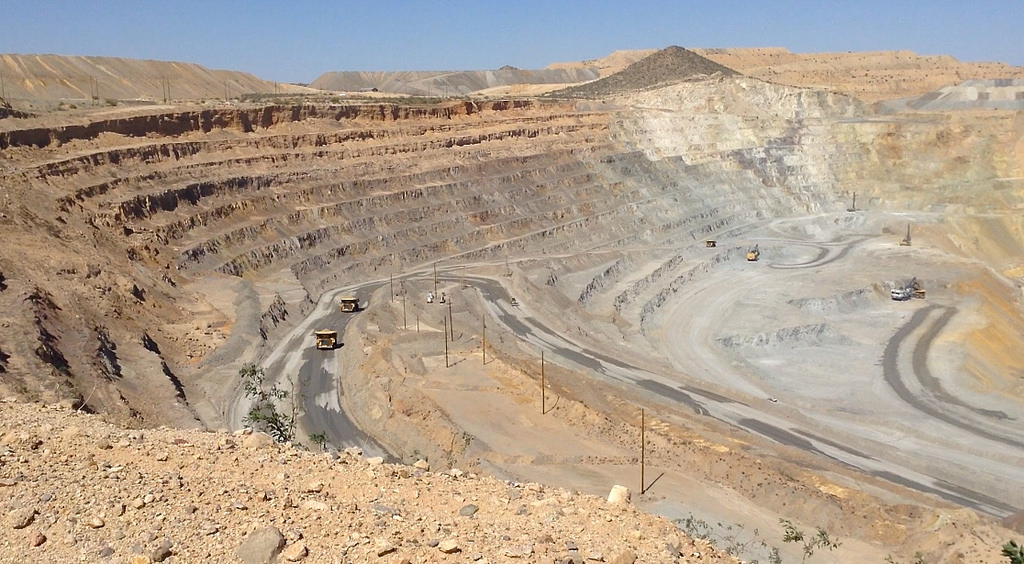 Parler
Parler Gab
Gab
- The U.S. and Ukraine signed a 10-year deal granting America preferential access to Ukraine’s mineral resources in exchange for continued military aid.
- Trump’s administration claims the agreement benefits U.S. taxpayers, but critics doubt the promised economic returns will materialize quickly.
- Ukraine secured concessions, ensuring the deal only applies to new aid and does not require repayment of past assistance, protecting its resource sovereignty.
- Experts warn that extracting Ukraine’s minerals—many in war zones—will take years, raising doubts about immediate U.S. gains.
- The deal lacks security guarantees for Ukraine, leaving its long-term stability uncertain while tying its economy closely to U.S. interests.
A deal born from pressure
The agreement establishes the U.S.-Ukraine Reconstruction Investment Fund, which will funnel American and international capital into Ukraine’s critical mineral sector, including rare earth metals, oil, and natural gas. While the White House frames this as a fair exchange for future military support, earlier drafts of the deal were far more lopsided, demanding Ukraine repay $350 billion in past aid. Ukrainian officials managed to negotiate key concessions, ensuring the deal only applies to new military assistance and does not force reimbursement for prior aid. "All resources on our territory and in territorial waters belong to Ukraine," emphasized Economy Minister Yulia Svyrydenko, who signed the agreement in Washington. Still, the Trump administration insists the deal safeguards American interests. "We made a deal today where we get, you know, much more in theory, than the $350 billion but I wanted to be protected," Trump told NewsNation, though he provided no specifics.Skepticism over mineral payouts
While the agreement grants the U.S. preferential access to Ukraine’s mineral wealth—including lithium, titanium, and uranium—experts caution that extracting these resources will take years and require massive investment. Many deposits lie in active war zones or regions under Russian occupation, raising doubts about immediate returns for American taxpayers. Moreover, the deal does not include security guarantees for Ukraine, a major sticking point in earlier negotiations. Zelensky had initially balked at signing without assurances of long-term U.S. support, but Ukrainian officials now hope that American economic involvement will indirectly bolster their security. "This is truly an equal and good international deal," said Prime Minister Denys Shmyhal, though some analysts argue Ukraine conceded more than it gained.A political gamble for both sides
For Trump, the deal is a chance to claim victory in his "America First" agenda, framing it as a way to recoup taxpayer dollars. But critics warn the administration is overselling the benefits. The agreement does not guarantee exclusive U.S. access to Ukraine’s resources, nor does it ensure profits will offset aid expenditures. For Ukraine, the pact offers a lifeline amid dwindling Western support, but it also ties its economy closely to U.S. interests, which is a risky move given Trump’s unpredictable stance on the war. The deal’s success hinges on Ukraine’s ability to stabilize its territory and attract investment while still fighting Russian forces. The U.S.-Ukraine minerals deal is a testament to hard-nosed diplomacy, but its long-term impact remains unclear. While the Trump administration touts it as a win for taxpayers, the lack of immediate returns and Ukraine’s precarious position suggest the benefits may be more symbolic than substantive. As the war grinds on, this agreement could either strengthen Kyiv’s hand or leave both nations grappling with unmet expectations. For now, America is sending a strong message that its support for Ukraine comes with strings attached. Whether those strings will ever pull their weight is another question entirely. Sources for this article include: TheNationalPulse.com APNews.com CNN.comTrump and UK strike historic trade deal, setting stage for global tariff negotiations
By Cassie B. // Share
Trump proposes cutting China tariff to 80% ahead of high-stakes trade talks
By Cassie B. // Share
By Finn Heartley // Share
House Committee advances sweeping energy expansion to unleash U.S. oil and gas production
By Willow Tohi // Share
Major airlines suspend flights to Tel Aviv amid Yemeni aerial blockade and rising tensions
By Laura Harris // Share
Governments continue to obscure COVID-19 vaccine data amid rising concerns over excess deaths
By patricklewis // Share
Tech giant Microsoft backs EXTINCTION with its support of carbon capture programs
By ramontomeydw // Share
Germany to resume arms exports to Israel despite repeated ceasefire violations
By isabelle // Share










